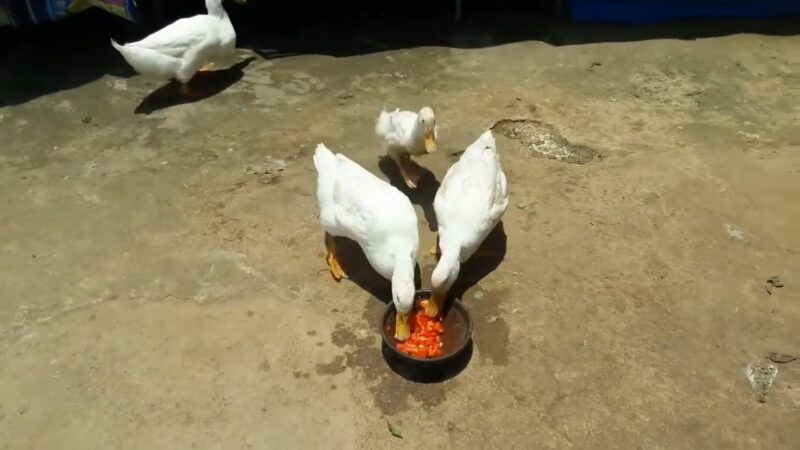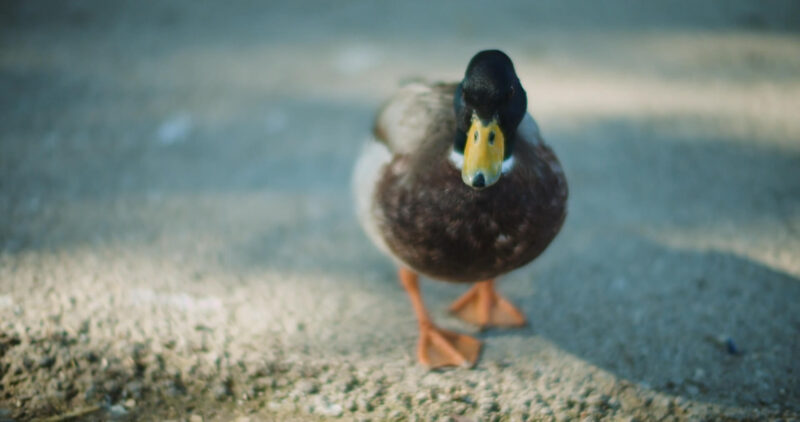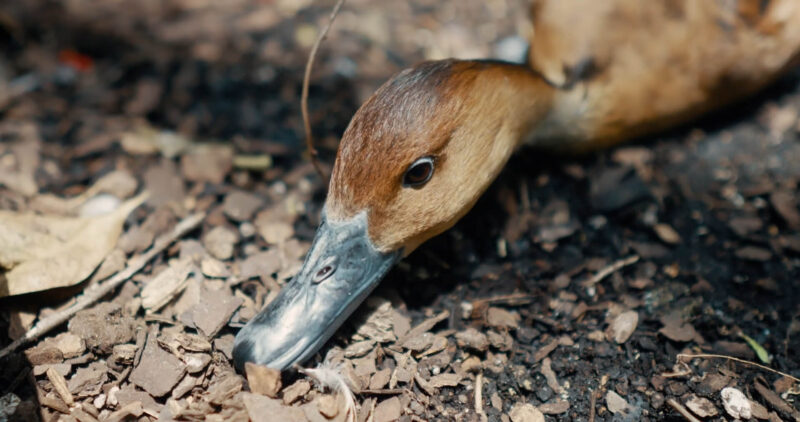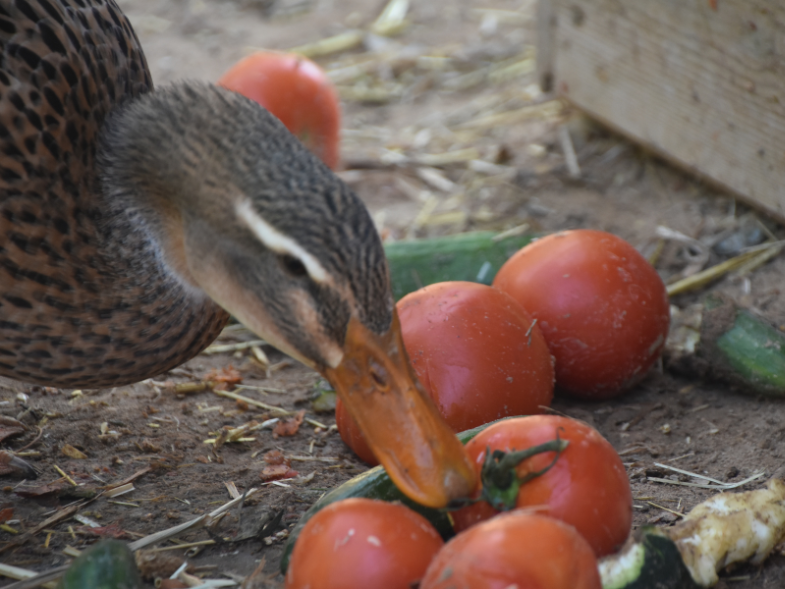Have you ever found yourself pondering whether ducks can enjoy the same garden treats as we do, such as tomatoes? You’re not alone. This topic is not only intriguing but also important for those of us who like to ensure the well-being of wildlife around us.
We’ll explore the specifics of whether ducks can safely indulge in tomatoes and how this fits into their overall dietary needs.
Key Takeaways
- Ducks can safely eat tomatoes in moderation, but they should not be a staple of their diet.
- Tomatoes are rich in vitamins C and A, potassium, and antioxidants like lycopene, which can offer health benefits to ducks.
- Potential concerns when feeding ducks tomatoes include the solanine content in green parts of the plant, high salt content, and digestive sensitivity.
- Safe feeding practices include offering tomatoes in moderation, ensuring they are ripe and thoroughly rinsed, and avoiding the green parts of the tomato plant.
Is It Safe?

The answer is yes, but with several important considerations. While tomatoes are not a natural part of a duck’s diet and are not inherently toxic, they should be offered in moderation due to their acidity and unusual texture compared to the ducks’ usual food.
Tomatoes contain various nutrients, including vitamins, minerals, and antioxidants, which can be beneficial when consumed in small amounts, contributing to the diversity of the ducks’ diet.
However, moderation is key, as ducks have specific dietary needs, and tomatoes should only be an occasional treat to prevent any nutritional imbalances or health issues. Overreliance on any single food item, such as tomatoes, can lead to deficiencies in other essential nutrients.
Nutritional Value
| Nutrient | Benefits for Ducks | Importance |
| Vitamin C | Supports the immune system | Essential for overall health |
| Vitamin A | Beneficial for healthy eyes and skin | Important during breeding season and for young ducks’ development |
| Potassium | Crucial for maintaining electrolyte balance and proper muscle function | Vital for active lifestyles involving swimming and foraging |
| Antioxidants (e.g., Lycopene) | May protect against certain diseases | Offers additional health benefits; impact less clear than in humans |
However, while tomatoes offer these benefits, they should not replace a duck’s primary food sources, as they cannot provide all the necessary nutrients found in a more varied diet.
Potential Concerns

There are several potential concerns to consider when feeding tomatoes to ducks. The Solanine Content in tomatoes, part of the nightshade family, can be problematic if ducks consume large amounts of the plant’s green parts. While the ripe fruit contains lower levels of solanine, the leaves and stems should be avoided to prevent toxicity.
Salt Content in some tomatoes, especially those from certain cultivation methods, may have a higher salt content, which can be harmful to ducks, leading to dehydration or other salt-related health issues. It’s important to rinse tomatoes thoroughly or choose low-salt varieties to mitigate this risk.
Digestive Sensitivity in ducks means that their digestive systems are adapted to process natural forage rather than processed human foods, and overfeeding tomatoes or any human food can disrupt their dietary balance, leading to malnutrition or digestive upset.
Safe Feeding Practices
Feeding ducks can be a delightful experience, but it’s important to do so responsibly to ensure the health and well-being of these birds.
- Offer tomatoes in moderation and as an infrequent treat to avoid causing dietary imbalances or health issues.
- Ensure they are ripe and thoroughly rinsed to remove any pesticides or contaminants that could harm the ducks.
- Avoid feeding ducks the green parts of the tomato plant, as they contain higher levels of harmful solanine.
- Maintain a varied diet for the ducks, incorporating natural foods and occasional safe treats.
- Avoid feeding ducks bread, as it offers little nutritional value and can lead to health issues such as malnutrition and pollution of their aquatic habitats.
- Opt for healthier options like cracked corn, oats, or peas that can provide better nutritional support for ducks in your local area.
What Do Ducks Eat In General?

In their natural habitats, ducks are opportunistic foragers, feasting on a variety of foods such as aquatic plants, insects, small aquatic creatures, and even small fish. This diverse diet helps them to meet their nutritional needs in different environments, from rural ponds to urban waterways. In previous texts, we wrote more about whether ducks can eat apples or carrots.
A balanced diet is crucial for their health, providing essential nutrients, vitamins, and minerals that support their growth, feather health, and reproductive capabilities. Being omnivores, ducks enjoy a diverse diet that includes both plant and animal matter, reflecting their adaptability to different food sources.
FAQs
Can ducklings eat tomatoes as part of their diet?
Ducklings can eat tomatoes, but only in very small, controlled amounts as their digestive systems are more sensitive than adult ducks. It’s best to focus on providing a diet suitable for their growth and development needs.
How often can ducks be fed tomatoes without causing health issues?
They can eat tomatoes once a week or less as a treat, not as a regular part of their diet, to avoid any nutritional imbalances or health issues.
Are there any specific types of tomatoes that are better for ducks?
Ripe, organic tomatoes are generally better for ducks as they are less likely to contain pesticides or harmful chemicals. However, all types should be given in moderation.
Can ducks eat cooked tomatoes, or should they only be fed raw tomatoes?
They can eat both cooked and raw tomatoes, but raw is preferable as cooking can reduce the nutrient content. Ensure cooked tomatoes are plain and not seasoned or mixed with harmful ingredients.
Is there a difference in nutritional benefits between red, green, yellow, and purple tomatoes for ducks?
While the basic nutritional profile remains similar across different colored tomatoes, red tomatoes tend to have higher levels of lycopene. The overall rule of moderation applies regardless of the color.
Can ducks eat tomato sauce or ketchup as a treat?
They should not eat tomato sauce or ketchup as these products contain additional sugars, salts, and other ingredients that can be harmful to their health.
The Bottom Line
Feeding ducks can be a joyful activity, allowing you to connect with nature and observe these charming creatures up close. While they can eat tomatoes, it’s crucial to approach this practice with care and moderation.
By understanding the nutritional benefits and potential risks, and adhering to safe feeding practices, we can ensure the health and happiness of our feathered friends. So, the next time you’re by a pond and considering sharing a snack with the ducks, don’t exaggerate.
